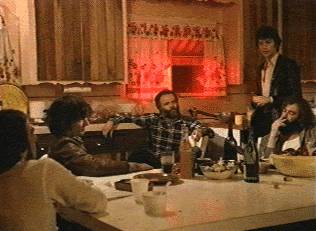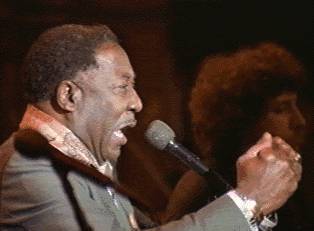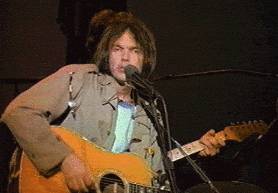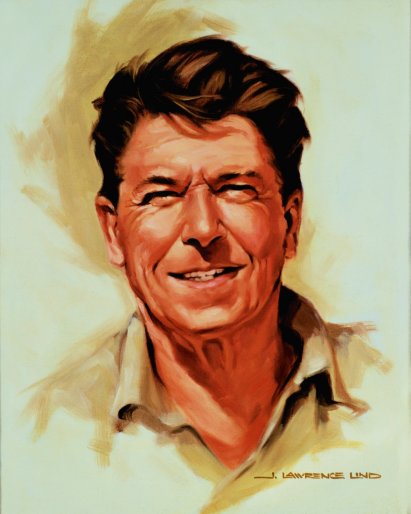Not that most of you care, but tonight was the induction ceremony for the Class of 2008 for the Rock and Roll Hall of Fame. Like most halls of fame, the RRHOF is surrounded by controversy and questions of “why is he in there?!” and “where the hell is Peter Gabriel?”, etc. etc.
I will post another article surrounding these debates at a later time (in fact, a frequent reader at GNABB and I have a great documentary in the works regarding one of these nomination battles); but tonight I’d like to focus on this year’s class of inductees and the ceremony. They used to broadcast the yearly ceremony on VH1, but to add insult to injury, not even VH1 deems it worthy of full broadcast anymore (they show a truncated version later), so you must tune in to VH1 Classic for the whole thing. Even my rather generous cable package does not include VH1 Classic, so I was reduced to watching the webcast at BestBuy.com.
Along with about 10 other people nationwide, I sat in front of my laptop in anticipation of the 2008 RRHOF Induction Ceremony. In years past, these ceremonies have been worth watching. The induction speeches are generally entertaining (highlights from previous years include Bono inducting Springsteen and then several years later Springsteen returning the favor for U2; a favorite speech was by Jeff Beck inducting Rod Stewart by saying “he likes me a lot more than I like him, but anyway, here’s Rod Stewart”). The acceptance speeches can be irreverent (two years ago The Sex Pistols sent a letter calling the RRHOF a "piss stain"...it was fun to watch Jann Wenner have to read the letter as their speech at the ceremony) or heartfelt, full of humor or uncomfortable moments as still feuding band members are forced to stand together and make nice. Jeff Beck provided another highlight the year that The Yardbirds were inducted. The former band members were all on the stage giving self-congratulatory remarks back and forth. It was worthwhile just to see the Holy Trinity of British Guitar standing side by side (Eric Clapton, Jeff Beck and Jimmy Page). When it was Beck’s turn to say something, he goes “I’d just like to say fuck you all for kicking me out of the band” (referring to the disasterous American tour when Beck was indeed booted from the band for his erratic behavior). For a split second everyone looked extremely uncomfortable, but then Beck burst out laughing as everyone else relaxed. As you can imagine, with these type of personalities, it is not your typical awards ceremony. The performances are often noteworthy, for either being great nostalgia or disasterous.
Jackass Jann Wenner (founder of Rolling Stone magazine and one of the more powerful and worst influences on the RRHOF) started things off with a decent rundown of the RRHOF criteria and history. The most notable part of this speech was the cutaway shot to Billy Joel and his date. She is freakin’ hot!
The first award was in the Non-Performer category for A&R legends Gamble & Huff. Ever humble: “Every time we wrote a song, it was a hit.” Patti Labelle’s performance before their induction was typically bombastic. I can never hear “If You Don’t Know Me By Now” without thinking of
this Ricky Gervais/David Brent transcendent video of the R&B classic from “The Office” (BBC version). I digress.
The Early Influence inductee for the night was Little Walter. Now, I am more excited about Little Walter’s induction than most of the other major inductions. In my opinion, the roster of Chess Records blues greats (of which Little Walter was one) is as responsible for inspiring rock and roll as anything else. Ben Harper gave a lovely induction speech (I liked “to pass through life is to pass through the blues, and to pass through the blues is to pass through Little Walter”). Little Walter did for the harmonica what Jimi Hendrix did for the guitar. Anyone who picks up the instrument passes through the sound of Little Walter. Harper and harp legend James Cotton’s version of “My Babe” was spot on.

ABOVE: blues great Little Walter
I was happy that instrumental surf legends the Ventures were inducted (with a warm introduction by John Fogerty), but their performance was a bit sloppy. I guess you can give these guys a break, their first hit was 48 years ago!
The induction of Leonard Cohen was a nice surprise. He is held in the same esteem as Bob Dylan in many songwriting circles. How high was Lou Reed during the induction speech?? My God. That was painful and fascinating to watch as Lou decided to read what seemed like every lyric Cohen has written over the last 30 years. Cohen, on the other hand, gave a hilarious and humble acceptance speech. His poem “Tower of Song” that he recited was brilliant: “So you can stick your pins in the voodoo doll / I’m very sorry, baby, but that doesn’t look like me at all”. Damien Rice’s performance of Leonard’s "Halelujiah" was beautiful. Don’t know why Leonard chose not to perform himself, though. By the way: this Damien Rice dude is great, although he had some killer material to work with tonight. Reminds me of early David Gray.

ABOVE: A very high Lou Reed recites Leonard Cohen lyrics...for a very long time
I always dig In Memorium tributes, but unlike the Oscars (who omitted Brad Renfro), perhaps the RRHOF were a bit too inclusive. Don Ho? It was sad that two members of the Dave Clark 5 died within the past couple of years before they could enjoy their induction…wait, what the hell? Jeff Healey died this year?? And the legendary Buddy Miles?? I missed those.

ABOVE: former MTV VJ Mark Goodman reports from the kitchen of the Waldorf Astoria at the 2008 Rock and Roll Hall of Fame ceremony
Next came Justin Timberlake to induct Madonna. Timberlake’s speech was a bit awkward and strained with his sexual innuendo, but funny in parts. Madonna’s speech seemed to go on about for about 30 minutes, but it was engaging. Madonna doesn’t perform, but instead has…Iggy Pop & the Stooges perform her tunes?! Ballsy. I like it. Iggy Pop jamming out to “Ray of Light”? OK. Also a great F-You to the Hall…why isn’t Iggy in yet?

ABOVE: Iggy Pop performs Madonna's greatest hits
Note: I’m not sure it was a good idea to show “classic performances” from past Rockhall ceremonies while they were working on transitioning the stage. With all due respect to this year’s inductees, showing such titans as Mick Jagger, Bruce Springsteen and John Fogerty all jam on “Satisfaction” together or a reunited Led Zeppelin tearing it up on “Bring It All Home” with Joe Perry and Steven Tyler…kind of reminds us that maybe we are running a little thin on rock greats left to induct.
As for John Mellencamp, I am glad he’s in there. Sure, he’s sort of a Springsteen-Lite, but he does have a great core group of songs. Billy Joel was hilarious doing the induction speech (“John, remember those dumbass videos we had to make in the 80’s?”) He also told a funny story about a flag football game between Billy and his band/crew vs. John’s, where Mellencamp secretly pulled in whoever was the star University of Indiana QB at the time and they slaughtered Billy and his boys. Great story. Mellencamp’s actual speech was alternatively bitter and humble. The performance was predictable…a rather lethargic version of ”Pink Houses” (a shame, because it is one of his greatest songs) and a nice solo acoustic “Small Town,” and finishing up with “Authority Song”. It was somewhat sad when Mellencamp tried to induce the tuxedoed, $10,000 per plate crowd to stand up and dance.

ABOVE: Mellencamp recalls the Johnny Cougar days
It is somewhat strange that Dave Clark 5 got the final induction. Having Madonna and Mellencamp open for you? Tom Hanks gave a spirited induction speech (“one of the few British Invasion bands not named for a mineral or an animal”). The best speech of the night. The DC5 gave a very classy acceptance speech, it was especially emotional because their lead singer Mike Smith died just one week ago. Having Joan Jett sing the DC5 tunes was inspired. She was kick ass, and looks the same as she did in the 80’s.
Finally, it was time for the All-Star jam. At times a train wreck, at other times inspired. First up: DC5’s biggest hit “Glad All Over” featuring Mellencamp and John Fogerty taking the lead, with Billy Joel jamming on the organ. The only downside was James Cotton honking away on what sounded like a harmonica in the wrong key for the song. The webcast ended at that point, but usually they jam for awhile at the end.
Overall, it was a varied slate of artists. Madonna and Mellencamp were givens, while The Ventures and Cohen were borderline choices but I approve. As touching as the DC5 were in closing the show, when you consider who is still not in the RRHOF, they were a pretty weak choice.
For an overview of all past inductees, go to the
Rock and Roll Hall of Fame website.
Future Rockhall is a fantastic and exhaustive blog discussing and debating all things Rockhall related.






















